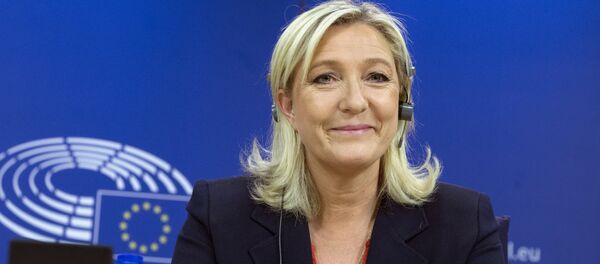Jonathan Story, emeritus professor of international political economy at INSEAD business school, told Sputnik that migration was the issue that Britain’s right-wing UKIP was strong on, while the mainstream parties pretended it did not exist.
"Immigration is the key issue which made the UKIP a national phenomenon because it illustrated the UK’s inability to shape its own policies in an area crucial to the concerns of millions of voters," the pundit said. Some 67 percent of those polled in Britain shared this view.
UKIP, which came third in the May 7 general election in terms of votes, has campaigned for curbs on immigration, claiming that Brussels has stripped London of any say on the matter.
Story underscored that the "reason for the rise of the UKIP is that people never agreed to hand over control of their political affairs to ‘Brussels’."
He likened UKIP’s secret of success to that of former UK Prime Minister Margaret Thatcher, whose early dealings with the Europe Union's predecessor – the European Economic Community – were about winning back control over national budgets from the center. "I want my money back," was a slogan she used in successfully negotiating for annual rebates.
Puente added that Spain’s leftist Podemos party and Marine Le Pen’s far-right National Front in France put in strong performance in local elections due to their anti-austerity programs. Yet, he argued that neither of the parties explained how they would fund public expenditure were they to leave the Eurozone.
"The economic program of Podemos and the options of Front National are very close but completely out of reality: both parties include in their programs to quit the euro. The main question is who will pay for the unrealistic offers included in their programs," Puente said.
The rise of anti-EU sentiment in Europe comes amid speculation about the possible withdrawal of several member states from the bloc.



